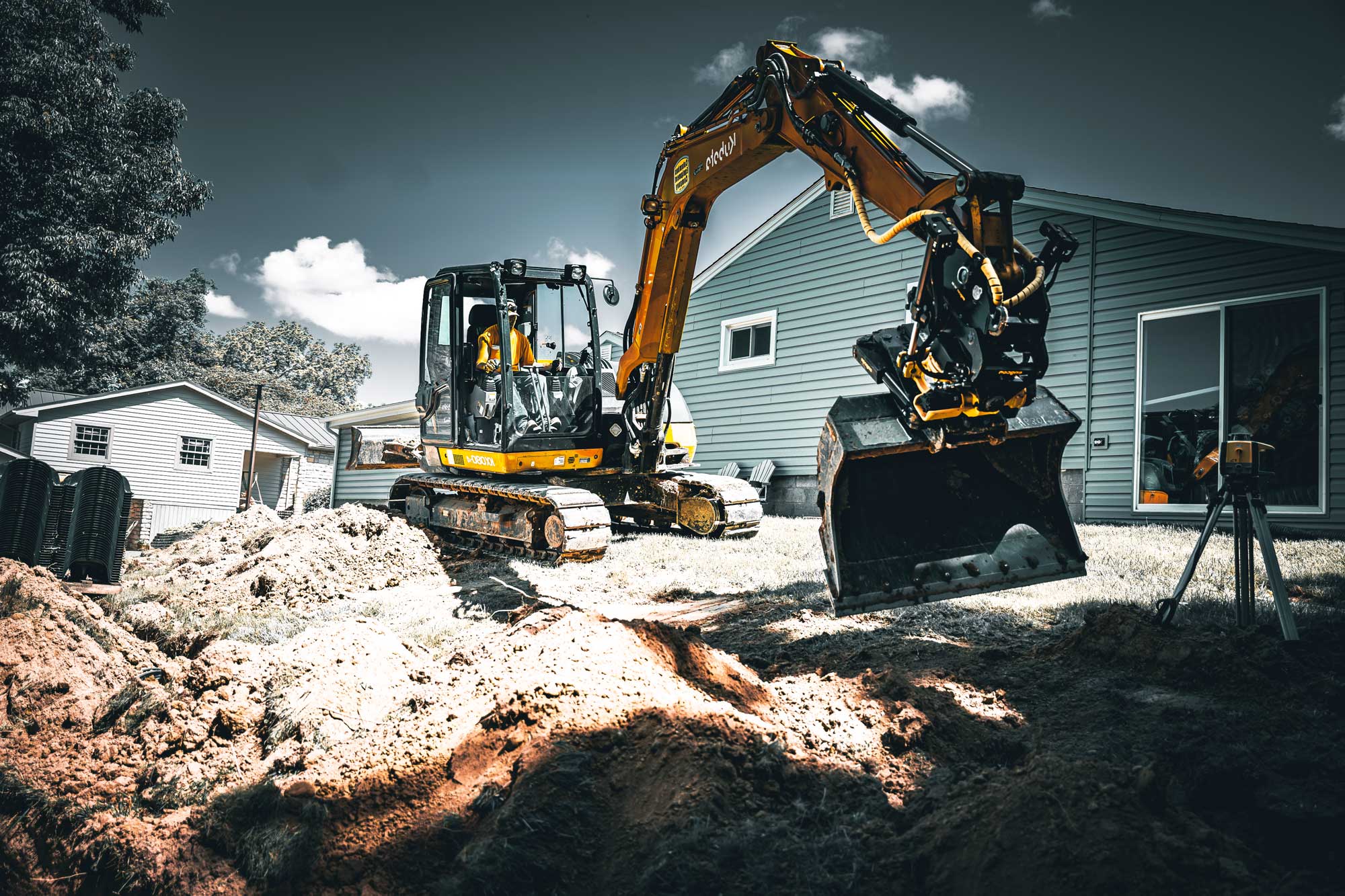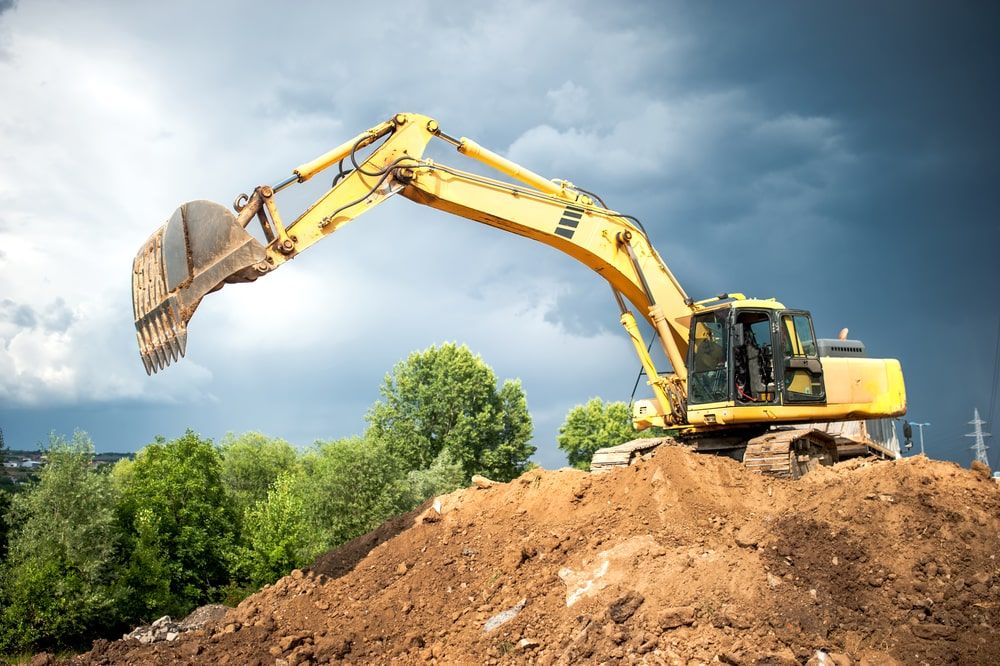Industrial Lancaster Trenching - Trenching Services for Organizations in Lancaster
Industrial Lancaster Trenching - Trenching Services for Organizations in Lancaster
Blog Article
Unveiling the Art of Excavation: Pro Tips for Safe and Productive Digging
As soil is transformed and earth is relocated, the complexities of excavation disclose themselves, demanding a keen understanding of tools, dirt composition, security procedures, and environmental factors to consider. The competence needed to navigate these aspects effectively can mean the difference between an effective excavation project and a potential calamity.
Value of Correct Devices
To make sure the security and performance of any excavation task, using the suitable devices is extremely important. Excavation projects vary in extent and intricacy, ranging from little household landscape design tasks to large-scale building tasks.
These versatile machines come in various dimensions to suit various job needs. Mini excavators are optimal for smaller sized tasks, while larger excavators tackle much more extensive tasks effectively.
Bulldozers succeed in tasks that call for pressing huge quantities of soil or debris. By spending in the ideal devices, excavation jobs can be completed safely, on time, and with accuracy.
Recognizing Soil Composition
A detailed grasp of soil composition is essential for executing excavation jobs with precision and safety. Recognizing the various sorts of dirt is critical as it straight affects excavation approaches, tools choice, and total task efficiency. Soil composition typically includes 4 main elements: sand, silt, clay, and natural matter. Each component has special buildings that affect just how soil responds to excavation procedures.
Sand particles are the largest and give good drain yet provide little communication. Silt fragments are smaller than sand but larger than clay, supplying modest drain and cohesion. Clay fragments are the smallest and give high communication however poor drainage. Raw material, such as decaying plant material, influences dirt fertility and stability.
Before starting excavation, carrying out soil examinations to identify its make-up and features is necessary. This information assists in picking the proper devices, implementing safety and security procedures, and developing excavation methods tailored to the specific dirt conditions - excavating ohio. By recognizing soil composition, excavation specialists can improve project outcomes while making sure safety and security and adherence to ideal methods
Precaution and Procedures
Recognizing soil structure is the foundation whereupon safety procedures and protocols for excavation projects are built, ensuring the health of employees and the success of the undertaking. When it involves safety during excavation, there are a number of essential steps that must be implemented to reduce dangers and protect against crashes.
Most importantly, prior to any digging commences, a complete examination of the site should be conducted to recognize any potential hazards such as underground energies, unpredictable soil problems, or nearby structures that might present a risk. It is critical to have a skilled person look after the excavation process to make sure that all safety and security protocols are complied with strictly.
Furthermore, all employees involved in the excavation needs to be properly educated in risk-free excavating methods and the appropriate procedure of tools. Individual protective devices (PPE) such as difficult hats, high presence clothing, handwear covers, and safety and security boots need to be worn whatsoever times to minimize the danger of injuries. lancaster trenching. Routine safety and security conferences and toolbox talks should also be carried out to maintain all employees educated about possible dangers and reinforce risk-free work techniques. By adhering to these navigate here security actions and protocols, excavation jobs can be finished efficiently and without event.
Efficient Excavation Planning
When beginning on an excavation job, precise preparation is crucial to make certain efficiency, safety and security, and successful results. Reliable excavation planning includes a number of crucial actions that are important for the smooth implementation of the project.
When the website analysis is full, the next action is to develop a clear timeline and schedule for the excavation tasks. This includes figuring out the sequence of tasks, tools demands, and workforce allowance. Correct organizing aids stay clear of delays and guarantees that the task stays on track.

In addition, communication among all staff member is vital throughout the planning stage. Clear instructions, regular updates, and reliable control are necessary for a successful excavation task. By investing time and effort in precise preparation, excavation groups can considerably boost efficiency, reduce risks, and achieve effective results.

Handling Environmental Factors To Consider
With raising emphasis on ecological sustainability in building and construction methods, taking care of environmental considerations has come to be a vital aspect of excavation jobs. Excavation activities have the prospective to affect the surrounding atmosphere via dirt erosion, debris runoff, environment disruption, and contamination of water sources. To mitigate these dangers, it is important to apply finest techniques that prioritize environmental management.

In addition, correct waste monitoring is crucial to avoid soil and water contamination. Carrying out procedures for the disposal of unsafe products, recycling of waste materials, and lessening using damaging chemicals can considerably reduce the ecological influence of excavation projects. By incorporating these techniques into excavation preparation and implementation, construction firms can guarantee that their projects are not just secure and effective yet also eco liable.
Conclusion
Finally, grasping the art of excavation needs a complete understanding of appropriate equipment, soil composition, precaution, and effective planning. By following these standards and thinking about environmental aspects, excavations can be carried out securely and efficiently. It is crucial to prioritize safety and performance in every excavating task to make sure successful outcomes.
As soil is transformed and earth is relocated, the complexities of excavation her response disclose themselves, demanding a keen understanding of devices, soil structure, safety and security methods, and environmental factors to consider.To guarantee the safety and performance of any kind of excavation project, using the suitable equipment is extremely important.A comprehensive understanding of dirt composition is essential for performing excavation jobs with accuracy and safety. Comprehending the various kinds of dirt is vital as it straight impacts excavation methods, tools option, and total job effectiveness. By recognizing soil composition, excavation professionals can boost job end results while making certain safety and adherence to best methods.
Report this page